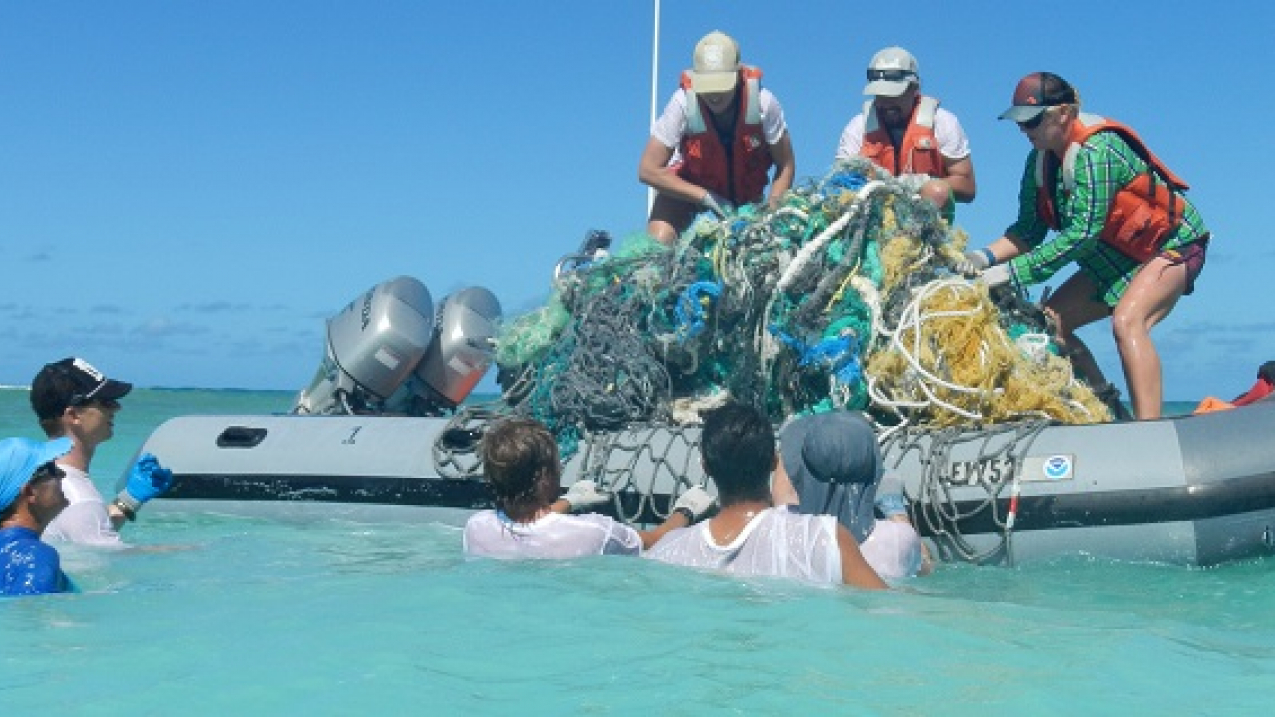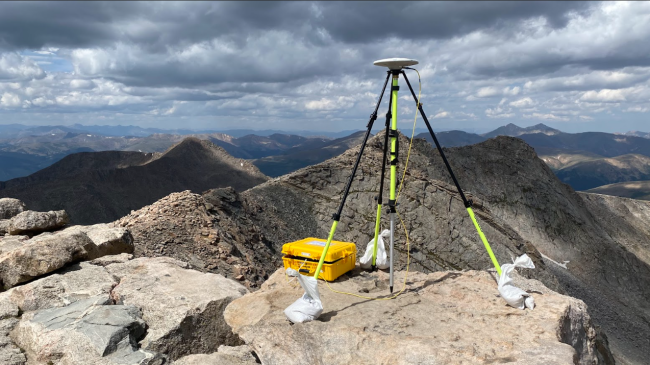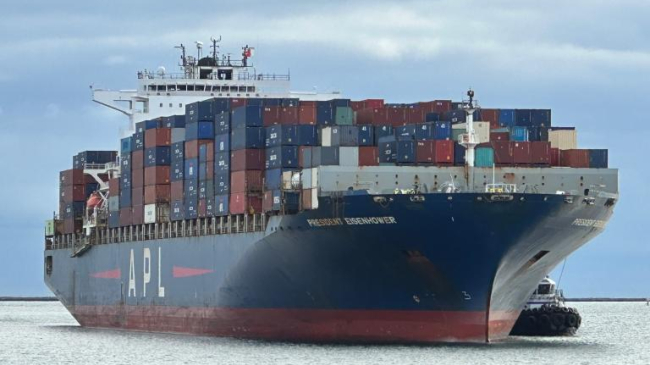NOAA has awarded more than $675,000 in grants to 13 projects aimed at aiding coastal communities in their fight against marine debris, the agency announced today.

NOAA removed approximately 57 tons of derelict fishing nets and plastic litter from the Papahānaumokuākea Marine National Monument (link is external)'s tiny islands and atolls, sensitive coral reefs and shallow waters. (Image credit: NOAA)
This is the third year NOAA’s Marine Debris Program has awarded grants through its Marine Debris Prevention through Education and Outreach grant competition.
“Education and outreach are important pillars of our program and we look forward to working with the recipients to help reach even more people,” said Nancy Wallace, the program’s director. “Marine debris is preventable and by raising awareness and learning how to stop it at the source, we can help solve this problem.”
The program’s education and outreach partners across the country have inspired thousands to become better ocean stewards, and have carried the message that prevention is the key to solving the marine debris problem.
This year, partners will help prevent marine debris through encouraging behavior change, implementing new marine debris reduction and prevention activities, and conducting public outreach and education in their communities.
The recipients are:
Pacific
- Malama Learning Center, Hawaii ($42,000) to address marine debris issues in Hawaii through professional development training focused on healthy coastal and marine environments using experiential and hands-on inquiry methods, community outreach, restoration workdays and education at Piliokahe Beach Park on O‘ahu.
- Clean Water Fund, California ($71,077) to prevent marine debris from food and beverage packaging used in the take-out food industry, focusing on eight communities in the San Francisco Bay area. The project will work with take-out food businesses and their customers and then measure how much marine trash is reduced.
- Earth Team, California ($75,095) for an innovative anti-litter program for high schools in the San Francisco Bay area to reach as many as 12,000 students and raise awareness about marine debris problems and solutions and encourage behavior changes on and off campus, in peers, families and the general public.
- The Northwest Straits Marine Foundation, Washington ($47,873) to reduce the effects of derelict fishing gear on marine species and habitats in Puget Sound,by preventing the loss of crab pots in the recreational crab fishery. The project will improve reports by commercial fishermen of nets lost during active fishing, and will educate recreational crabbers on how not to lose their pots.
Atlantic Coast
- The National Aquarium, Maryland ($72,013), to work with local partners and advocates in the Masonville Cove region of Baltimore through community cleanups, leadership and education training.
- University of North Carolina, Wilmington ($29,615) to educate elementary and middle school students in rural eastern North Carolina about migratory marine species, how marine debris affects marine organisms, and the origins of marine debris – including actions that students can take to reduce marine debris.
- Gulf of Maine Lobster Foundation ($65,730) to enhance stewardship and prevent marine debris among public school teachers and students, nonprofit environmental organizations, public university researchers, professional scientists and their institutions, and fishermen and industry throughout the Gulf of Maine. Students will learn about marine debris and attend a project summit to develop local action plans for their communities with marine debris prevention initiatives.
- Rutgers, the State University of New Jersey ($57,853) to prevent derelict fishing gear and other marine debris from ending up in New Jersey coastal waters. Through recreational crab pot workshops, they will teach crabbers about local ghost pot removal and how to avoid adding to the ghost fishing problem.
- The University of Hartford, Connecticut ($29,319) to introduce students to marine debris concerns, guide them in the process of collecting and tracing the life cycle of debris, and challenge them to use the data to contextualize policy alternatives and present them to their state legislators. Students will also participate in beach cleanups at shoreline sites.
Gulf of Mexico
- Nature's Academy Inc., Florida ($43,700) to improve students’ and teachers’ understanding of coastal ecology through experiential learning targeting elementary schools in Manatee County, Florida.
- The University of Florida ($16,896) to train citizen-scientists to look for the presence of microplastics—pieces of plastic that are smaller than 5 millimeters—throughout Florida coastal waters through the Florida Microplastic Awareness Project. The goal is to have people make the connection between their actions and the environment by showing them how the plastics collected in local waterways are connected to human sources.
- University of Texas-Pan American ($91,020) to develop and implement educational and outreach activities to stop debris from entering the Gulf of Mexico and South Texas coastal zone. The project will create educational programs for K-12 students, reach out to diverse audiences of coastal zone residents and beachgoers about the sources of marine debris, organize marine debris cleanups, create public service announcements, and engage the general public through social media and smartphone apps.
Great Lakes
- City of Cleveland, Ohio ($32,860) to reduce plastic marine debris in Lake Erie. Using community-based social marketing, they will address barriers to the reduction of three common plastic marine debris items--grocery bags, water bottles and cigar tips.
Each year, NOAA’s Marine Debris Program supports projects across the country that use outreach and education as a way to prevent marine debris. These projects aim to change behavior, especially among youth, and provide them with hands-on experiences that deepen their understanding of the marine debris problem.
NOAA’s mission is to understand and predict changes in the Earth's environment, from the depths of the ocean to the surface of the sun, and to conserve and manage our coastal and marine resources. Join us on Twitter, Facebook, Instagram and our other social media channels.
Contact:
Keeley Belva
301-713-3066



